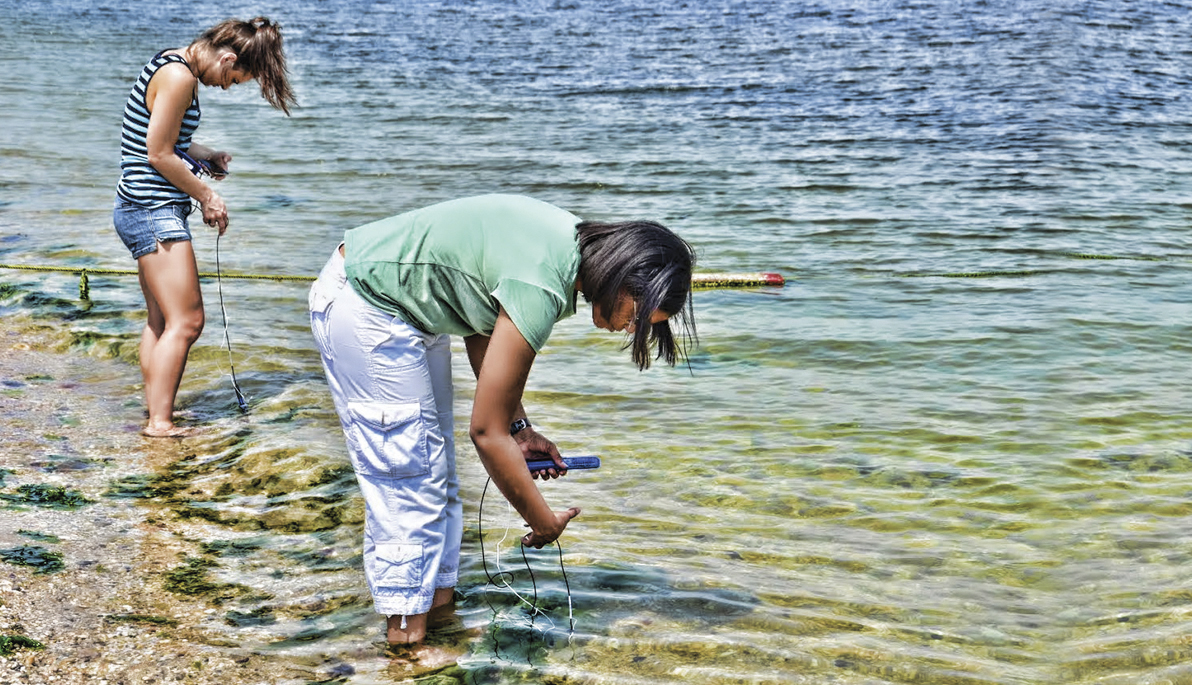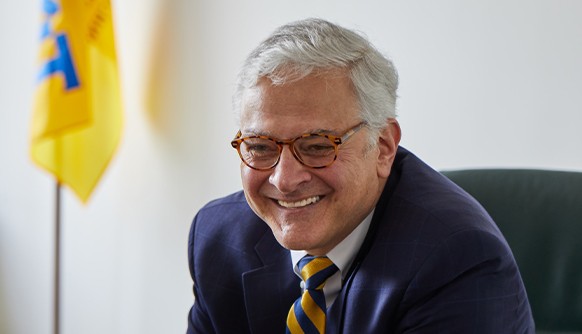News
ETIC Borrows U.N. Goals to Challenge NYIT Student Inventors
November 20, 2018
Borrowing cues from a United Nations global development program, NYIT’s Entrepreneurship and Technology Innovation Center (ETIC) is focusing the school’s most creative thinkers on the world’s biggest socioeconomic challenges.
The ETIC Design Challenge Series is a multifaceted “invention inventor” aimed at cranking out new technologies that support clean air and water, human rights, and other issues.
The focus areas are defined by the U.N.’s Sustainable Development Goals, a blueprint of interconnected improvements promoting global sustainability, preferably completed by 2030. But the idea of uniting inventive types from NYIT’s myriad programs in the service of save-the-world quests belongs to ETIC Director Mike Nizich, Ph.D.
Last year, the ETIC ushered students through a number of tech-creation initiatives. Teams from NYIT College of Osteopathic Medicine and NYIT College of Engineering and Computing Sciences created new assistive-technology designs, while other NYIT students focused on workplace-assistance devices at a New York State Industries for the Disabled competition.
Strong performances by those students—and their faculty mentors—convinced Nizich that “we could produce something here with real social impact.”
This semester, the ETIC introduced the Design Challenge Series, which aims to “generate 15 to 20 new inventions by the end of the [semester],” according to Nizich.
Along the way, students can continue entering competitions (at NYIT and elsewhere) where their responses to the U.N.’s to-do list might apply. And they’re eligible for prizes and provisional patents.
“We want students to be highly trained and skilled and ready for the regional workforce,” Nizich says. “And we want them to have access to the workforce, even if they don’t take an internship or a job.”
Weaving the U.N.’s Sustainable Development Goals through the series gives all inventors a similar focus and provides organizers with mechanisms for scoring and judging performances. The series has three levels, wherein participants explain their idea, make a white board presentation, and then deliver a prototype and pitch video.
The series kicked off November 1, and the clock is definitely ticking, according to Nizich, who says the deadlines and quick turnarounds kick-start the inventive process.
“By giving them a limited amount of time, you’re actually getting a group of driven students who really want to make a change,” he notes. “When you lay it out like that, students who have the ability and interest find out where their passion is, and it drives them.”
Faculty and commercial collaborations also beef up each participant’s résumé, tying nicely into the ETIC’s Technology Internship Prep Program and other efforts to prepare NYIT students to navigate professional waters.
And with NYIT engineering students required to complete “capstone projects,” as many as 50 teams of student innovators will be utilizing ETIC resources additional heft, Nizich notes. “We’ve seen many innovations come out of the senior-design projects,” he says. “Combine those with the competition, and we have between 50 and 70 new inventions each semester…And now they’re centralized, so we can show them to a larger population.”
That population will see an “innovation portal” directing NYIT’s creative might in socially conscious directions. Students are already working on new water-purification devices, several mobile apps, and a “combination” of other technologies, according to Nizich.
The series is also promoting collaboration, with students recruiting new team members based on specific needs. Nizich references a similar phenomenon during the ETIC’s one-day hackathon events, which challenge computer programmers to solve cybersecurity and other challenges and often require the formation of ad-hoc teams.
“These programs are all designed to work together, based on the things we’ve seen work—the things that will be most beneficial to the schools, to the students, and to industry,” Nizich says. “The ETIC is a business incubator, and when startup companies come, they’re going to work with students who’ve participated in hackathons or won an award in the Design Challenge Series.
“It shows a different level of production in the students,” he adds. “And that’s what companies like to see.”
Want to get involved? Register for ETIC’s Cybersecurity Hackathon on November 30.




